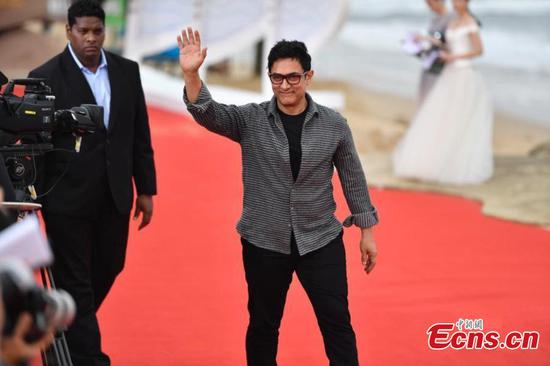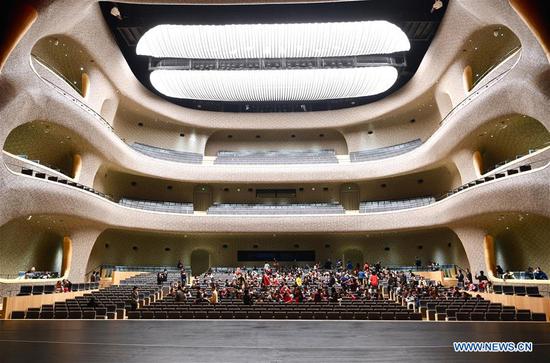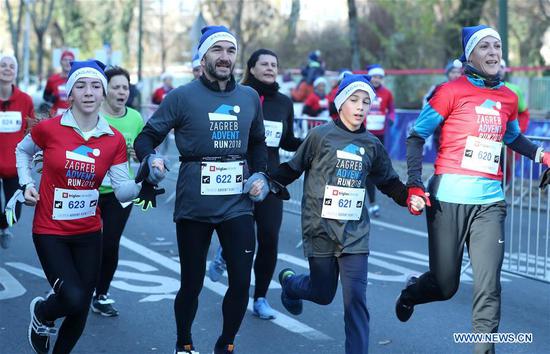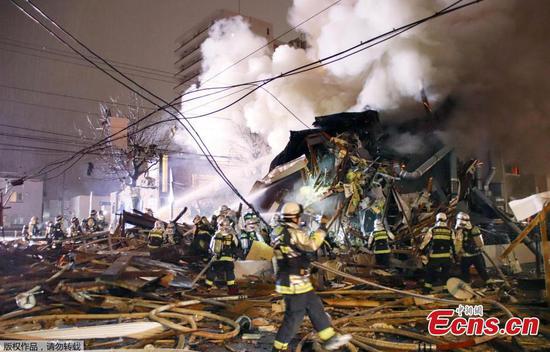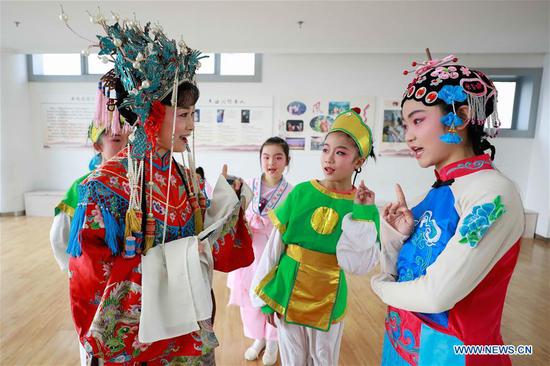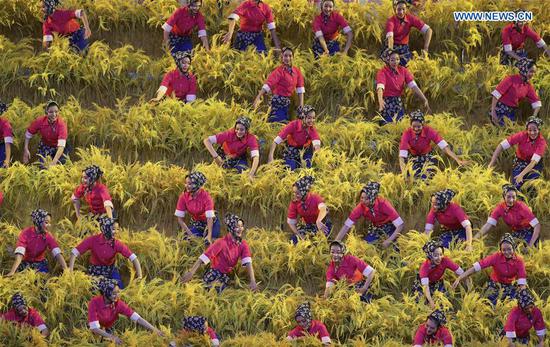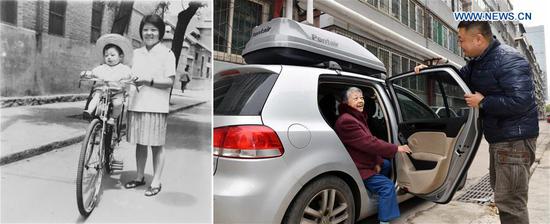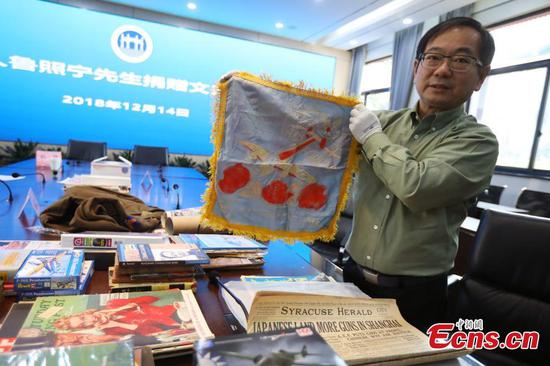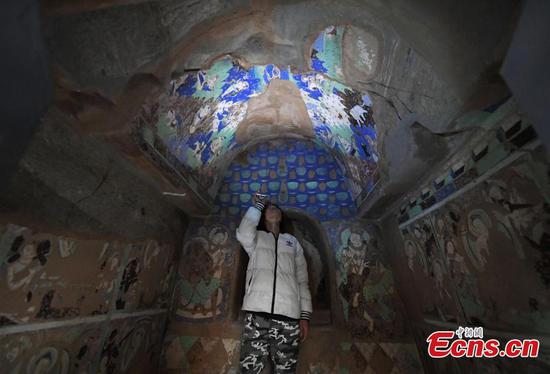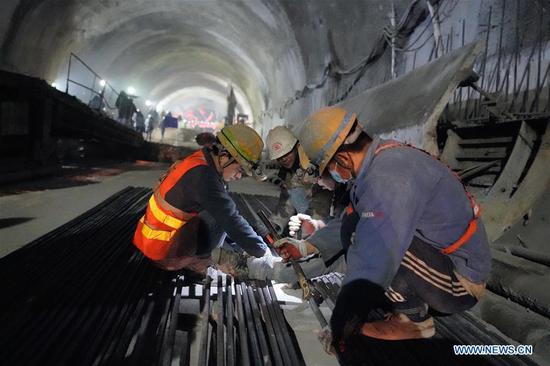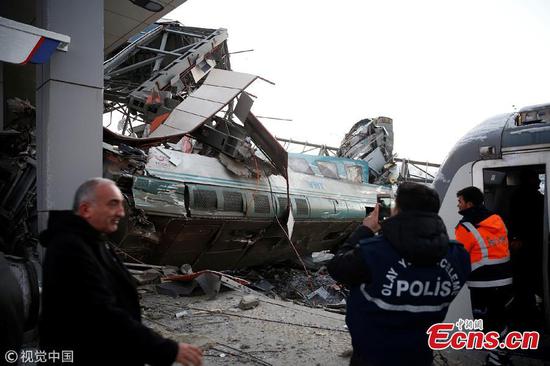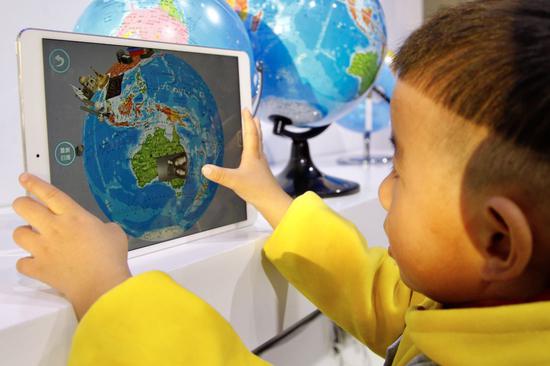
A boy experiences the online classes of Zuoyebang at this year's World Internet Conference at Wuzhen, Zhejiang province. (Photo by Chen Zebing/China Daily)
Cutting-edge technologies like artificial intelligence and machine learning are helping students in lower-tier cities to gain access to high-quality education, an industry insider said.
"One thing we need to notice is that the majority of Chinese primary and middle school students, who are in huge need of high-quality educational resources, still live in third-to sixth-tier cities," said Hou Jianbin, founder and CEO of Zuoyebang, an online education startup backed by Sequoia Capital.
Hou further said: "Technology is a great leveler. It is helping distribute educational resources across the nation. In the past, such resources used to get concentrated in top cities. Now, even lower-tier cities and remote areas are able to access top-quality education."
With education emerging as a priority area for economic growth-minded China, the government has called for more efforts to apply new technologies like AI in the field, so that the younger generation could grow into a driving force of high-quality development.
Industry insiders said constraints relating to space, time and money are concerns for students, parents and teachers alike.
Recent data showed that there are around 180 million primary and middle school students in the country. More than 73 percent of them live in lower-tier areas.
To tap into this potential demand, the Beijing-based Zuoyebang has leveraged AI and augmented reality or AR.
For instance, its geography lessons incorporate 3-D models of earth, and enable students to see and "turn" the globe around for a proper perspective. The embedded vivid images and animations are a big help, according to some users.
Zuoyebang, Hou said, has also promoted other free online learning products, including a livestreaming course-Zuoyebang Yike-where students call to take online lessons taught by famous teachers in big cities.
Some 60 percent of Zuoyebang's users are based in lower-tier cities. A review of the top 10 areas in terms of average app-use time per user shows that, 45 percent of users come from relatively under-developed areas, including Ningxia Hui autonomous region, Yunnan province and Xinjiang Uygur autonomous region.
"Technologies have a lot more to do. We hope to leverage our strengths like technology to promote not only quality education online but also education equity," he said.
Zuoyebang raised $350 million in its series-D financing this summer, with Goldman Sachs, Sequoia Capital China, GGV Capital among its investors. It will use part of the funds to make educational resources available to more students, the startup said.
"Opportunities will continue to burst out in the Chinese market, especially from second- and third-tier cities," said Wang Hua, managing partner of Sinovation Ventures, in an earlier interview to China Daily.
Smaller cities could be a promising market even for online education firms, given the popularity of Pinduoduo, which offers online group discounts for low-cost products. Pinduoduo gained popularity in spite of debuting in the online shopping sector much later than Alibaba and JD, he said.












